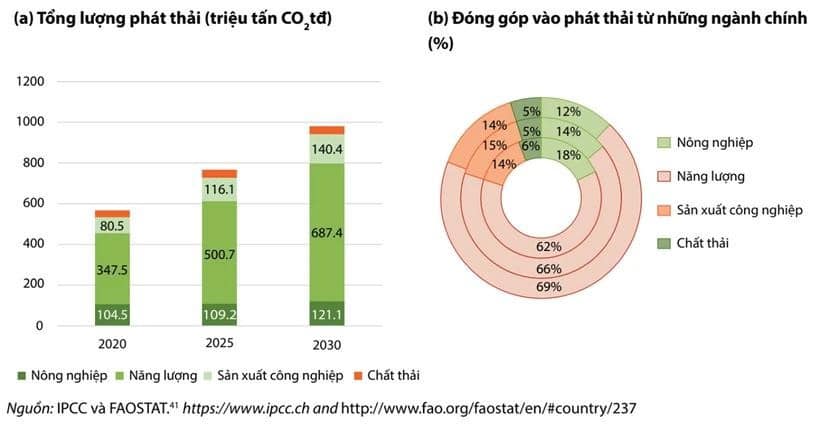
The year 2023 marked a very important milestone for the forestry industry in particular and the green economy in general, when for the first time Vietnam successfully sold 10.3 million forest carbon credits through the World Bank (WB). The Southeast Asian country has earned US$51.5 million.
This amount of money will be used to pay forest owners, local people’s committees and organizations assigned to manage natural forests. So far, this is the biggest deal in the industry, but not the only one.
The Biodigesters program for a low-carbon livestock sector in Vietnam has been implemented in 53 provinces with approximately 181,683 biogas plants. The program is assessed by international organizations as having contributed significantly to the reduction of greenhouse gas emissions.
Through the Biodigesters program, Vietnam has sold 3,072,265 carbon credit units, earning $8.1 million. Currently, international organizations have been proposing to buy each carbon credit (equivalent to reducing 1 ton of CO2 emissions) at $5.
Meanwhile, in Vietnam’s agricultural sector alone, experts estimate that it can generate 57 million carbon credits per year, helping the country earn nearly $300 million a year. The benefits of selling carbon credits are very clear, but the problem is not only gaining benefits but also what must be done to implement the Net Zero roadmap (cutting greenhouse gas emissions) to zero by 2050 as per Vietnam’s commitment to the international community.
However, the country is facing the problem with the unperfect legal framework for this activity although the voluntary exchange of carbon credits from Vietnam to the world has been carried out by a small number of businesses since the mid-20s when implementing programs and projects under the Clean Development Mechanism (CDM) – a United Nations-run carbon offset scheme allowing countries to fund greenhouse gas emissions-reducing projects in other countries and claim the saved emissions as part of their own efforts to meet international emissions targets.
On January 7, 2022, the Government issued Decree No. 06/2022/ND-CP regulating greenhouse gas emissions mitigation and ozone layer protection, which stated the date for implementing the domestic carbon market from 2025 and officially operates from 2028.
in a talk with reporters from SGGP Newspaper, Director of the Ministry of Finance’s Department of Legal Affairs Hoang Thai Son said that policy-makers of the draft project to establish the market have listened to opinions from relevant ministries and agencies, and are currently continuing to be perfected. If everything goes well, the draft project will be submitted to the Government for consideration and promulgation in the first quarter.
There is no doubt that the business community strongly hopes that the project will soon be formalized. Although there have been voluntary transactions, the carbon credit market is only effective and brings real benefits when it is applied synchronously, widely and fairly globally.
(SGGP)




